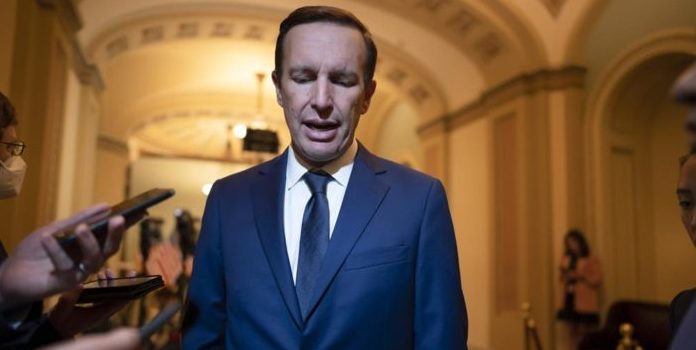(Ken Silva, Headline USA) When journalist Matt Taibbi reported earlier this month on the existence of a shady State Department-funded network colluding with corporate media outlets to censor dissident political voices, he noted that this “Global Engagement Center’s” nearly $100 million budget is up for reauthorization this year.
“Can we at least stop paying to blacklist ourselves?” Taibbi asked a simple question at the end of his report.
Top Democrats have answered Taibbi’s question with a resounding “No.”
At a Senate Foreign Affairs Committee hearing on Wednesday, Sen. Chris Murphy, D-Conn., called for reauthorization of the GEC, which Twitter owner Elon Musk earlier this month deemed the “worst offender in U.S. government” when it comes to censorship and media manipulation.
“There’s no way to combat Russian and Chinese misinformation without the GEC,” Murphy insisted.
Murphy, who drafted the original legislation in 2016 that led to the GEC, asked Secretary of State Antony Blinken at the hearing about why the GEC is so important for his department.
“This is a front line in the conflict: information. We have competitors using disinformation and misinformation against us every day. The GEC for us is a critical tool to combat that,” Blinken said.
“If we lose that, we’re disarming ourselves.”
But as Taibbi explained earlier this month, the GEC has morphed from a network designed to combat foreign propaganda, to one pushing for domestic censorship of dissident views.
1. TWITTER FILES #17
New Knowledge, the Global Engagement Center, and State-Sponsored Blacklists pic.twitter.com/8LuoKY9zzA— Matt Taibbi (@mtaibbi) March 2, 2023
According to Taibbi, the GEC funded groups such as the Atlantic Council’s Digital Forensic Research Lab, which in turn compiled blacklists of Twitter accounts that were supposedly tied to foreign disinformation campaigns. The Digital Forensic Research Lab sent those blacklists to Twitter so that the company could deactivate the accounts listed.
The problem was, the lists were extremely inaccurate, Taibbi wrote earlier this month in his latest report on the Twitter Files—the trove of internal company documents that reveal the company’s censorship decisions over the last several years.
For instance, the Digital Forencic Research Lab sent Twitter a list of 40,000 accounts of being “paid employees or possibly volunteers” of India’s Bharatiya Janata Party. “But the list was full of ordinary Americans, many with no connection to India and no clue about Indian politics,” Taibbi said.
Taibbi also pointed out how the GEC blacklists included accounts that weren’t directly linked to foreign governments—but they were listed anyway because they retweeted or shared news from foreign sources.
“As one Twitter exec put it: ‘If you retweet a news source linked to Russia, you become Russia-linked,’ does not exactly resonate as a sound research approach,’” Taibbi said.
The 2017 version of the National Defense Authorization Act created the GEC, so it’s likely that reauthorization of the GEC would take place in this year’s NDAA deliberations.
Ken Silva is a staff writer at Headline USA. Follow him at twitter.com/jd_cashless.

